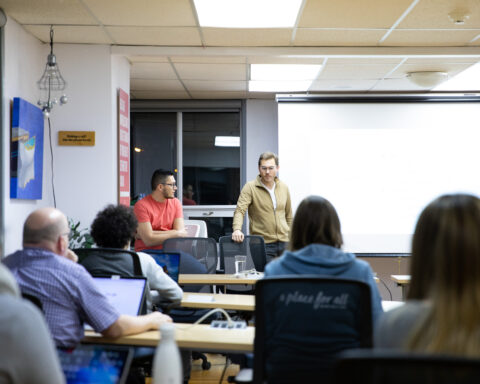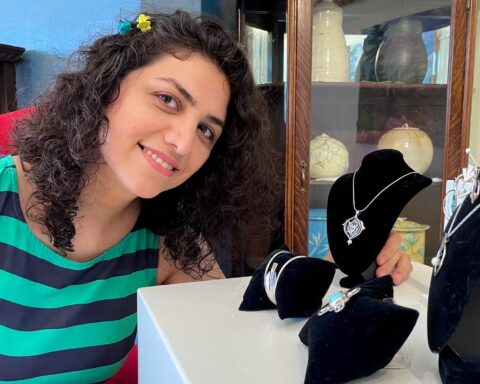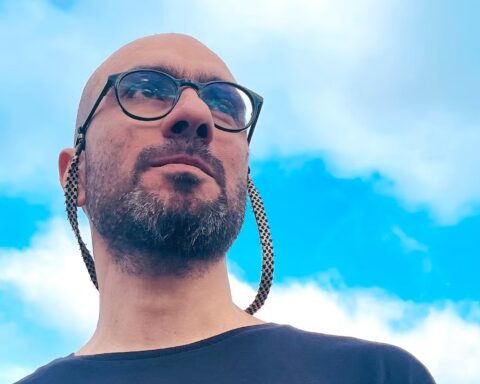It’s been 100 days since the Iranian regime imprisoned Concordia University anthropologist Homa Hoodfar in the country’s notorious Evin Prison. As the Iranian Canadian Congress called on the Trudeau government to re-establish diplomatic ties with the country Wednesday, Hoodfar’s family said they fear re-engagement may come too late to help the imprisoned academic.
“The fact that there’s no relationship means that step one is to establish that relationship, step two is to discuss matters such as my aunts’ case,” said Amanda Ghahremani, Hoodfar’s niece and one of the family’s spokespeople. “So we haven’t even reached a point where this case can be properly engaged with the Iranians. For the case of my aunt I worry that the renewed interest in re-engaging with Iran is coming much too late.”
Prime Minister Justin Trudeau campaigned on a vow to re-establish diplomatic ties with Iran and re-open Canada’s embassy in its capital of Tehran.
Former prime minister Stephen Harper severed ties in 2012, citing Iranian support for Syrian dictator Bashar al-Assad, its continued nuclear programme and consistent human rights violations as reasons.
However, that decision has raised serious problems for Iranian-Canadians such as Hoodfar because Iran does not recognize dual citizenship and treats any dual Iranian-Canadians visiting the country as its own and has shown a willingness to punish them for things such as criticizing the regime or conducting research in areas it deems unsuitable.
The latter appears to be the case with Hoodfar, who has built a name for herself studying the intersections of gender and sexuality in Islamic religious tradition.
While the exact charges against her are not known and there’s no date set for a trial, she is rumoured to be accused of “collaborating with a hostile government, propaganda against the state, and ‘dabbling in feminism.’”
While Ghahremani says she has been in constant contact with consular officials working to liaise with her about her aunt’s case, she stressed the lack of direct engagement between consular officials and the Iranian government has likely led to unnecessary delays.
“This is of course a constant roadblock in terms of how quickly things can progress,” said Ghahremani.”It’s been 100 days that my aunt’s been in prison and that’s 100 days too many. If there had been direct diplomatic relations, I’m speculating but I assume that a lot of the engagement could have happened much quicker.”
Speaking during a press conference to announce the launch of a new e-petition, Iranian Canadian Congress president Bijan Ahmadi urged the government to prioritize re-engagement with Iran in order to ensure it can protect Iranian Canadians, who he says “have suffered disproportionately” from Harper’s severing of ties.
“After four years it is now evident that this policy to sever diplomatic ties with Iran has failed,” Ahmadi said. “Diplomatic rapprochement at this point will not only ensure Canada stands with its allies … but also will strengthen Canada’s historical role of promoting peace.”
The e-petition, number 553, launched last week and currently has more than 5,500 signatures from Canadians.
It is sponsored by Liberal MP Majid Jowhari, who also spoke to reporters Wednesday and said he thinks the e-petition “provides a piece of evidence that would be hard to ignore” to show Canadians want their government to re-engage.
Jowhari largely stuck to repeating past government statements when asked whether there is a timeline for re-opening the embassy and what concrete steps are being taken to pursue breaking the diplomatic ice.
“There are a lot of common elements that both parties need to reach an agreement,” he said. “We will take this step by step.”
When asked directly what the government is doing to pursue its pledge of re-engagement, a spokesperson for Foreign Affairs Minister Stéphane Dion said the same thing.
“We have repeated our commitment to re-engage with Iran in a step-by-step manner,” said Chantal Gagnon, press secretary for the minister.
Gagnon acknowledged not having diplomatic ties as the government tries to secure Hoodfar’s release makes the issue much more difficult.
“The challenges posed by the absence of a diplomatic presence cannot be underestimated,” she said. “Privacy considerations and the fact this is an active case prevent us from discussing Government involvement in further detail, however rest assured that this case is a priority for us.”
It’s expected the issue of Hoodfar’s imprisonment will be a prominent topic at the United Nations General Assembly in New York, which Trudeau will be attending next week.
Twenty former UN rapporteurs released a statement Wednesday calling for Hoodfar to be released and adding their voices to a growing global call for her case to be resolved, which includes 5,000 academics from around the world who signed a petition earlier this summer.
The calls are taking on increasing urgency as Hoodfar’s health deteriorates. On Wednesday, an Iranian hard-line judge dismissed her lawyer and appointed one he preferred.
Published under arrangement with iPolitics.ca




